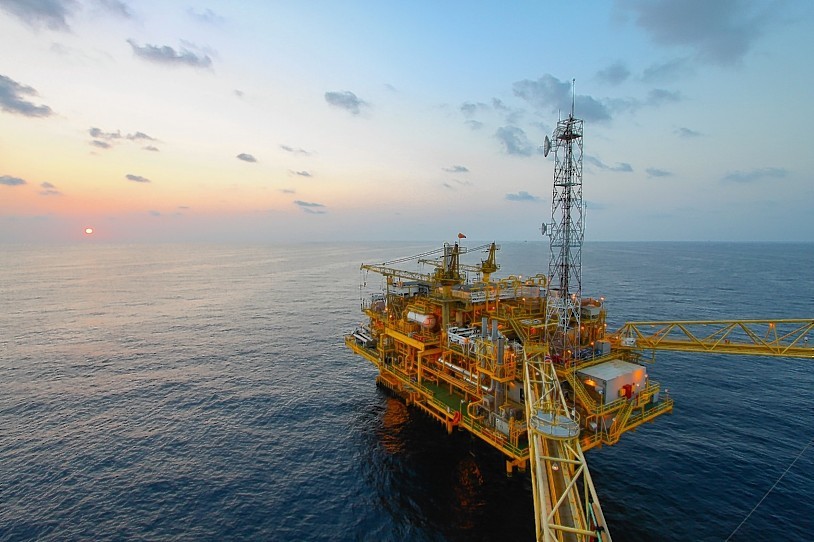
A firm led by a group of oil industry veterans aims to clinch a money spinning acquisition before the end of the year.
Spinnaker Opportunities, set up in November 2016, intends to at least double its investors’ money within two years via a reverse takeover of a firm in the energy sector or wider industry.
Spinnaker defines itself as a cash shell – a listed company with no assets except cash.
It raised £1.2million in an initial public offering (IPO) on the London Stock Exchange in May and is now drawing up a shortlist of targets.
The firm’s directors have skin in the game, having invested £310,000 of their own money, while “close associates” of the board have also put money in.
Spinnaker managing director Andy Morrison, a former board advisor to Canada’s Zenith Energy, said the IPO had allowed many investors to get in “on the ground floor”.
Mr Morrison, previously chief executive of Zeta Petroleum and Silvermere Energy, said investments from the board meant the interests of Spinnaker’s management and investors were “aligned”.
Spinnaker’s directors will not take out any cash before the completion of the first acquisition, either.
They are determined to do a deal quickly so that everyone involved can get paid.
“We won’t be paying ourselves salaries until the first takeover,” he said. “Why would we? It’s our own money.”
Spinnaker’s top brass includes businessmen with experience of advising and investing in junior companies.
Other directors include Richard Liddell, a current non-executive director at Sound Energy and former operations director at Premier Oil.
Andy Duncan, an experienced financier who has worked for Standard Chartered and Bank of America Merrill Lynch, is a board advisor for Spinnaker.
They believe a takeover will help create a track record, enabling them to go on and do similar deals in future.
Mr Morrison said the timing was right for a reverse takeover, which is when a smaller, listed company takes over a larger private company, but the larger company ends up in control.
It is a method typically used by private firms to speed up their transition to public status.
“There is a willingness in the market to invest, though that has maybe not been quite as pronounced over the last few months as the oil price has been a little less strong,” he said.
“We’ve seen a slight moderation of that attitude and we are preparing for a summer of people watching and waiting.
“But after summer there will be a renewed determination and appetite.”
Spinnaker has run the rule over 30 potential targets across Africa, Europe the UK and the US, most of which are in the energy sector.
Of those, 16 are still under consideration and 7 have passed formal screening.
Mr Morrison said Spinnaker was in the market for an established company worth between £5million and £30million with a strong management team and potential to make a profit.
“We are now at the point where we are shortlisting a handful of companies,” he said. “The idea is to make a choice by early autumn then complete the transaction by the end of the year.”
Those most ripe for the picking include firms based overseas which lack the connections or experience to conduct their own admission process.
Family-run firms, spin-outs and businesses in urgent need of seed capital could also be a good fit.
Spinnaker’s directors don’t see themselves sticking around once the deal has been inked.
Ideally, they would exit straight after the takeover and go on to the next target, though they are open to staying involved for up to two years.
Mr Morrison said: “We’d be happy to talk about staying on if it helps the enlarged company, for example, if they don’t have much presence in London.
“But all the businesses we are targeting have management teams.
“They would run the show and grow the business after the reverse takeover using the money we would raise.
“Our team is built around an ability to find deals. We’re not looking to manage the on-going company, but if they need us we’ll talk about it.
“Our job is to find something to buy that lets us get some uplift in our share price.”
Spinnaker is not looking at oil companies with licences that are not yet at the production stage, or technology companies with no sales.
“There are interesting opportunities around technology in oil and gas,” Mr Morrison said.
“I’m not sure whether that technology will move fast enough for us, but we’ve got our eyes on it.
“We would want a company that’s already producing. It’s got to have some sales.
“It needs to have an upward trajectory so that we can build the value of that company.
“Then, in a couple of years, we hope to double our money and that of our investors.
“Maybe we can even do a bit better than that.”
Recommended for you

